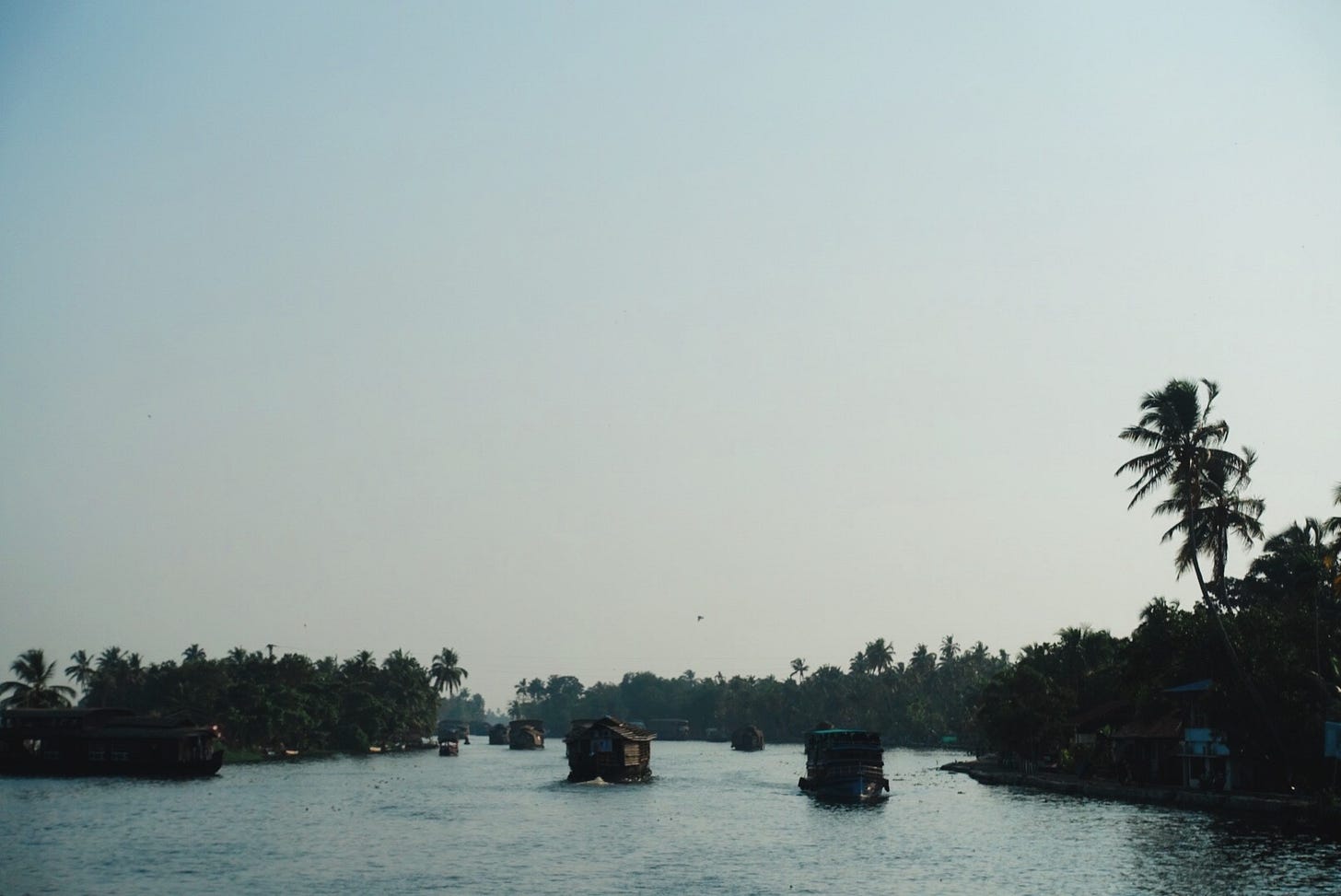#51 Mother Nature Cradling Its Children
Time to bring back another new story. This is the story of Rynkatbor and Kordorshisha, a Khasi couple who live in Udem, Meghalaya in India. Today, they are taking the boat out on the water to catch fish.
For my other stories, fall with a violent force upon the archives.
For more stories by other writers, click here.
New feature klaxon 📣: for every story I will add a suggested accompanying song to listen to (if I can remember to do it)! This week, the story soundtrack is: Ashera’s song by Susanne Sundfør.
#51 Mother Nature Cradling Its Children
Everything that begins ends. And everything that ends has a beginning. At the end of the day there is night, and at the end of night there is morning. That is the fingers of the morning sun reaching over the horizon, through the trees of Meghalaya, over Udem, and into the windows of the Khasi people, and Kordorshisha and her husband Rynkatbor who wake with puffy eyes and the sounds of Mother Nature clicking and whistling and whirring from the vast mountain-space that surrounds them.
Kordorshisha puts her hand on her husband’s cheek and smiles as his eyes adjust to their surroundings. Their world his been set alight not two months earlier, at the birth of their youngest daughter, Da-ailang, who they expect will be their last child, the one who will inherit everything their family has. The future.
Surprisingly, all three children are still sleeping, even the young Da-ailang. They wake the eldest, Aitilang, and tell her to watch the children this morning as they go fishing. ‘Continue your teaching with your brother and see your grandmother and get her anything she needs.’ Aitilang, the stoic, quiet child nods and the parents leave.
They head down to the river, where the sun’s fingers are glistening in the water, reflecting the greens, blues and whites of the trees and sky around them. They head out onto their modest fishing boat. Kordorshisha takes Rynkatbor between her hands and whispers in his ear, ‘Mei-ri-sawkun… mei-ri-sawkun…’ and kisses his forehead, before they slip out on the water, faint ripples the only sound as the rest of the mountain sleeps.
They row out into the centre of the river, cast their lines and wait patiently. Kordorshisha drifts her fingers in the water of the river and touches it to her forehead, before pulling out two small fish in quick succession. She giggles like a child at her success, and Rynkatbor marvels at her. After two hours, Kordorshisha has caught five fish to Rynkatbor’s none, and they laugh and joke that she is better than him at everything. Rynkatbor asks if they can swap sides and he stands to shimmy past her towards the back of their little skiff. As he does, however, he loses his footing, the boat rocks from side to side and, all of a sudden, the peace of Mother Nature’s morning is broken by the almighty splash of Rynkatbor’s body thundering into the water!
For a moment he’s fully submerged, but when he resurfaces he sees the stretching hand of Kordorshisha reaching down to him. He grabs her hand and she grabs his, and he pulls the side of the boat and she leans back, tugging him back aboard. It takes two or three goes before he gets the momentum to fully bring himself up onto the little boat. When he does, he’s covered in water and algae across his face and chest. He’s heaving and she is too, sweat tickling her cheeks and temples.
He’s chattering between breaths, ‘This is no good, this is no good,’ and she pushes his hair back from across his face and tells him, ‘It’s okay. It’s okay. I am here.
For Rynkatbor, it’s a great relief that she is here. With the sun’s fingers reaching down over her shoulder, he sees Kordorshisha and the sun as one and the same. She is his sun, the great Kordorshisha, the morning to his night. Rynkatbor starts to cry, a joyful cry, at his great reward in life, to be with Kordorshisha. She still has her hand on his forehead as she smiles down on him, and whispers, ‘Mei-ri-sawkun…’
Mother Nature that cradles its children and all else that exists around them.
Soon, the fingers of the sun will recede again behind the horizon, and Meghalaya, and Udem, will return to the night. The end of the day. And soon, the sun will return and bring with it another morning.





